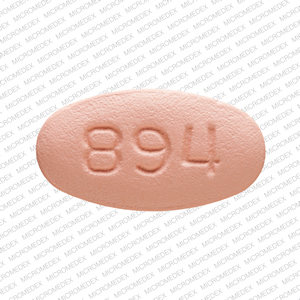Eliquis Disease Interactions
There are 4 disease interactions with Eliquis (apixaban).
Factor Xa inhibitors (applies to Eliquis) bleeding
Major Potential Hazard, Moderate plausibility.
The use of factor Xa inhibitors is contraindicated in patients with active pathological bleeding as these agents increase the risk of bleeding and can cause serious or fatal hemorrhages. Caution is recommended when prescribing factor Xa inhibitors to patients at increased risk of bleeding, including patients undergoing procedures where bleeding may cause serious complications. Such patients include those undergoing spinal/epidural anesthesia or spinal puncture; these patients are at high risk of an epidural or spinal hematoma, which can result in long-term or permanent paralysis. In general, when using factor Xa inhibitors, the risk of thrombotic events should be weighed against the risk of bleeding.
Factor Xa inhibitors (applies to Eliquis) hepatic impairment
Moderate Potential Hazard, Moderate plausibility. Applicable conditions: Liver Disease
The use of factor Xa inhibitors (including apixaban and edoxaban) is not recommended in patients with moderate or severe liver dysfunction (Child-Pugh B or C) as these patients may have intrinsic coagulation abnormalities.
Factor Xa inhibitors (applies to Eliquis) valvular heart disease
Moderate Potential Hazard, Moderate plausibility. Applicable conditions: Prosthetic Heart Valves, Mitral Stenosis
The use of some factor Xa inhibitors (including apixaban, edoxaban, and rivaroxaban) is not recommended in patients with prosthetic heart valves; safety and efficacy have not been established in such patients.
Oral anticoagulants (applies to Eliquis) antiphospholipid syndrome
Moderate Potential Hazard, Moderate plausibility.
Direct acting oral anticoagulants including factor Xa inhibitors and some thrombin inhibitors as dabigatran, are not recommended for use in patients with antiphospholipid syndrome (APS). Treatment with these drugs has been associated with increased rates of recurrent thrombotic events, especially in patients with triple positive APS.
Switch to professional interaction data
Eliquis drug interactions
There are 403 drug interactions with Eliquis (apixaban).
More about Eliquis (apixaban)
- Eliquis consumer information
- Check interactions
- Compare alternatives
- Pricing & coupons
- Reviews (243)
- Drug images
- Side effects
- Dosage information
- Patient tips
- During pregnancy
- Generic availability
- Support group
- FDA approval history
- Drug class: factor Xa inhibitors
- Breastfeeding
- En español
Related treatment guides
Drug Interaction Classification
| Highly clinically significant. Avoid combinations; the risk of the interaction outweighs the benefit. | |
| Moderately clinically significant. Usually avoid combinations; use it only under special circumstances. | |
| Minimally clinically significant. Minimize risk; assess risk and consider an alternative drug, take steps to circumvent the interaction risk and/or institute a monitoring plan. | |
| No interaction information available. |
See also:
Further information
Always consult your healthcare provider to ensure the information displayed on this page applies to your personal circumstances.


